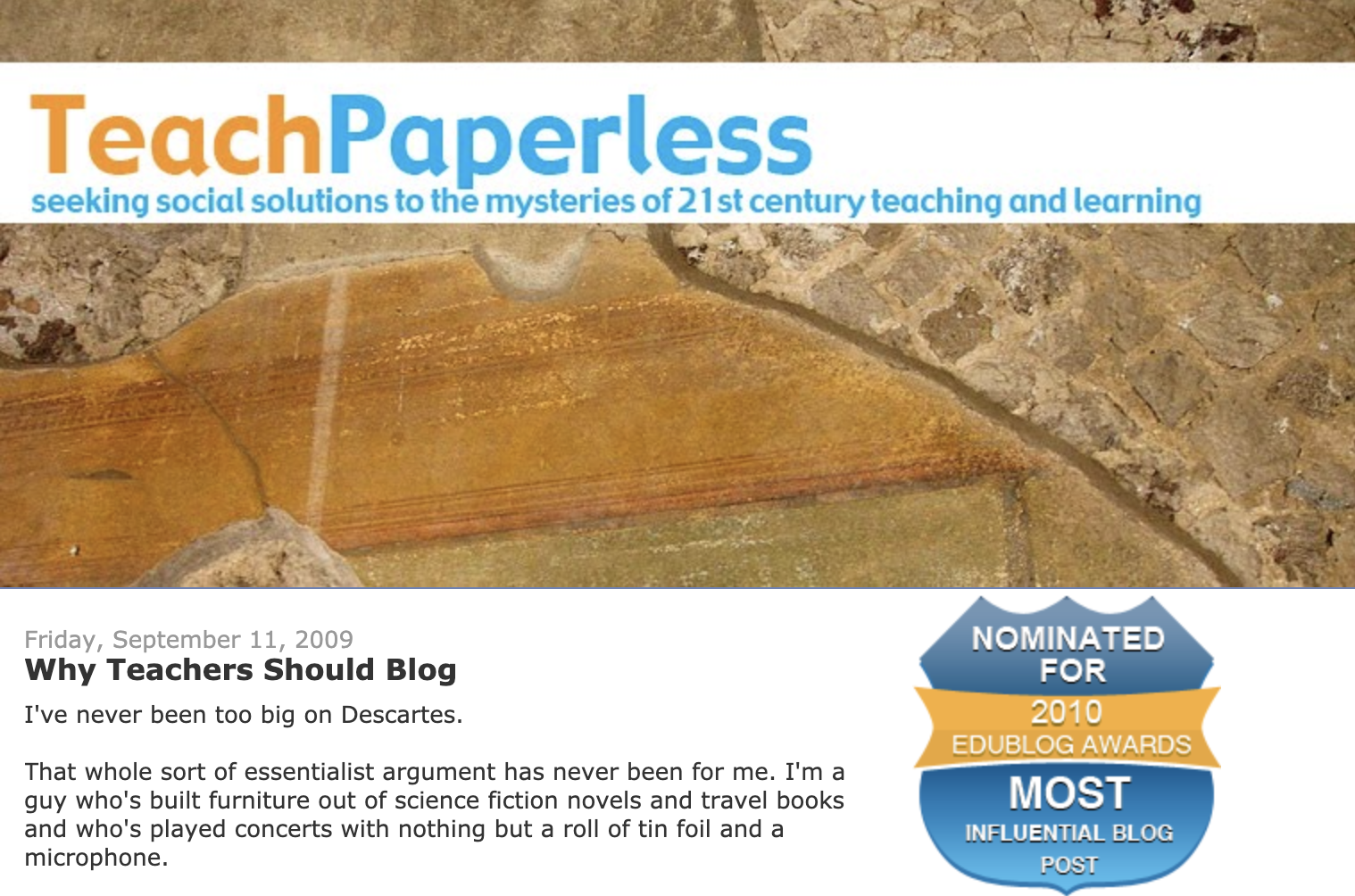
In his Teach Paperless blog Shelly Blake-Plock offers several excellent reasons for Why Teachers Should Blog. Blake-Plock posits that):
- The essence or meaning of a blog is determined by what the author posts and how others respond.
- A blog reveals how the author thinks.
- Blogs confirm who the author is and what ideas, thoughts reactions, dreams and the author is currently pondering.
- A blog can help teach the author WHAT they think.
The notion of thinking about ones own thinking and about learning is summed up by Blake-Plock in the following statements:
This is real maturity. Because real maturity is not about having the right answers, it’s about having the audacity to have the wrong answers and re-address them in light of contemplation, self-argument, and experience.
This is made perhaps even more evident by the public nature of the blog, and that is one of the foremost reasons all teachers should in fact blog. Because to face one’s ill conclusions, self-congratulations, petty foibles, and impolite rhetoric among peers in the public square of the blogosphere is to begin to learn to grow.
And to begin to understand that it’s not all about ‘getting it right’, but rather is a matter of ‘getting it’.
Understanding the difference between getting it right and getting it is the key to learning. You can make mistakes and still get it. Unfortunately, many of our politicians, administrators and even some educators just don’t get this. Learning from one’s mistakes is central to learning.
Blake-Plock’s post has inspired me to think about why I blog and while I endorse his arguments. I suggest that we need to go further and expand our thinking on this topic to include all learners–not just teachers. I also posit that we need to include the following suppositions to fully round out why all learners should blog:
- A blog can help a learner make meaningful connections
- A blog reveals that a learner is learning.
- Blogging reveals WHAT a learner has learned.
- A blog can expand our capacity to learn.
When I take the time to analyze a video, blog post, article or book and write about it in my blog I actually move the subject of what I am writing about from information to knowledge–I make it my own. Regardless If people comment on my blog posts or not the process of reflection, analysis and then synthesis helps me make the necessary meaningful connections which means I am learning. My blog becomes an organizational point for what I have learned and it can serve as a starting point when I wish to review my thoughts at a later date. In essence my blog acts as an extension of my long term memory.
Blogging has enabled me to expand my capacity to store and retrieve knowledge and when I combine this with tools like Evernote which enables me to store, organize and easily retrieve small bits of information my short term memory is also further expanded. Contrary to what Nicholas Carr states in the Shallows, the internet is not making us stupid–IFF we choose to use it to expand and enhance our learning. The choice is ours.

































